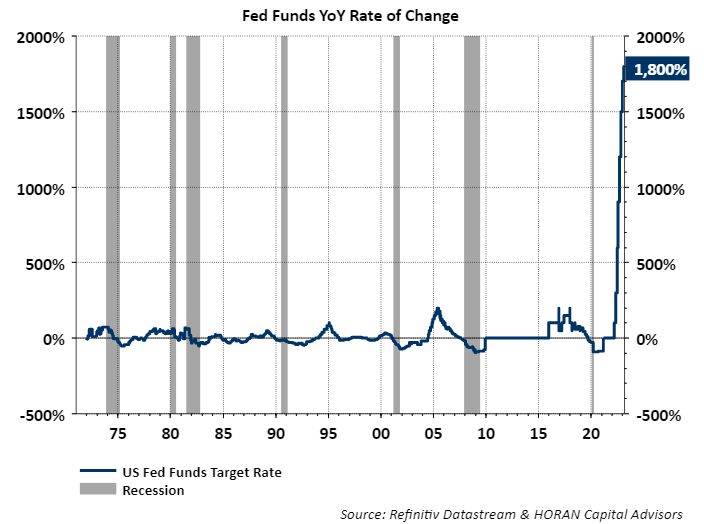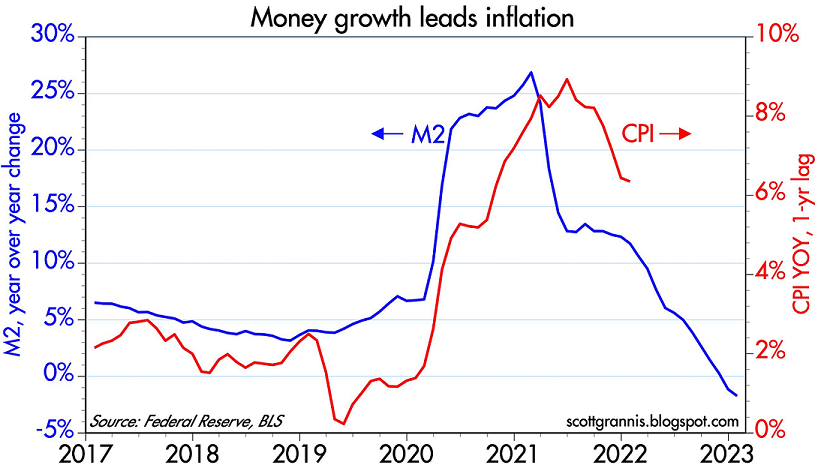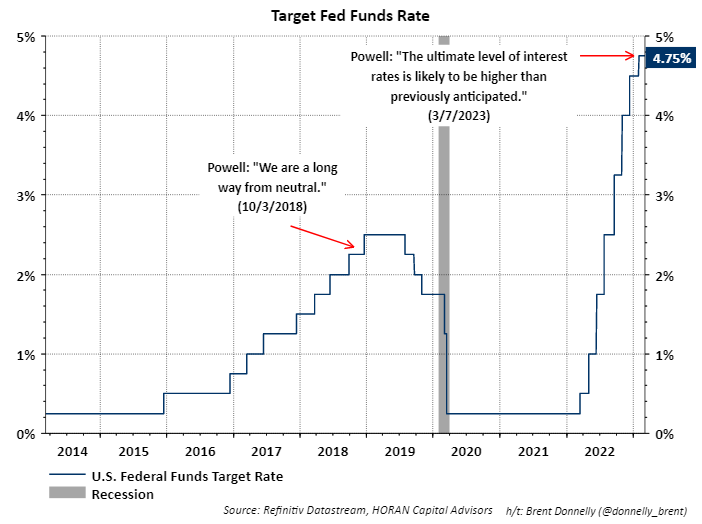Author: David I. Templeton, CFA, Principal and Portfolio Manager
The Dow Jones Industrial Average fell -543 points or 1.66% today (Thursday) and the S&P 500 Index's decline was slightly larger, down -1.85%. The more focused financial related indexes traded down more than the broader market. The S&P 500 Index financial sector ETF (XLF) was down over -4%, the SPDR S&P Bank ETF (KBE) was down -7.28%. The market's weakness today was driven largely by the news that SVB Financial Group (SIVB) reported a loss of $1.8 billion on the fire sale of its $21 billion bond portfolio. SIVB also stated they would raise $2.3 billion by selling stock; thus, diluting existing shareholders. The stock of SIVB fell over -60% during regular trading today and declined another 22% in after-hours trading. SVB Financial Group is a bank headquarter in Santa Clara, California. SVB stands for Silicon Valley Bank and it is one of the largest banks in the U.S. with over $200 billion in assets. The bank's initial focus was working with companies, many located in Silicon Valley, that were financed and supported by venture capital firms. The market reacted negatively to the news because of the potential for other banks to have similar issues as SIVB.
With the Fed pushing up interest rates at the fastest pace on record, bond portfolios have lost sizable value, especially if the bonds had maturities of any significance. This pace of increase in the Fed Funds Target Rate can be seen in the below chart.
Without getting into too much detail, banks have favorable accounting rules that allow them to not record treasury bond and certain highly rated corporate bond portfolio losses through the income statement. These bonds fall into three categories on a bank's balance sheet, available-for-sale (AFS), held-to-maturity (HTM) and trading.
The pace of increase in interest rates seemed to be on a slowing trend as the Federal Reserve's rate increase last month was .25% or 25 basis points, down from the prior increase of 50 basis points. On Tuesday, Jerome Powell, the chairman of the Federal Reserve, made comments before a Senate Banking Committe saying, "the ultimate level of interest rates is likely to be higher than previously anticipated." Since those comments on Tuesday, the market is now expecting the next Fed Funds rate increase to equal 50 basis points, up from a slowing rate of increase of 25 basis points that was instituted just last month. A reacceleration of rate increases will place additional downward pressure on the value of bond portfolios that have longer maturities, negatively impacting some bank portfolios.
I have noted in several earlier blog posts that there are signs the rate of inflation seems to be slowing and coming down. One article I highlighted in an earlier blog post was titled, M2: the smoking gun of inflation, and it noted the contraction of the money supply, M2, and included the below chart.
There are signs inflation has peaked and its rate of increase declining. Our firm does not believe the rate increase cycle will or should end here; however, there are signs inflation appears to have peaked and the Fed should stay the course on the 25 basis point hikes at least through one or two more Fed meetings. Chairman Powell made similar comments about the pace of interest rate increases in the hiking cycle that began in 2016 and ended with the increase late in 2018. Might his comments earlier this week be late in the hiking cycle too?
HORAN Wealth, LLC is an SEC registered investment advisor. The information herein has been obtained from sources believed to be reliable, but we cannot assure its accuracy or completeness. Neither the information nor any opinion expressed constitutes a solicitation for the purchase or sale of any security. Any reference to past performance is not to be implied or construed as a guarantee of future results. Market conditions can vary widely over time and there is always the potential of losing money when investing in securities. HORAN Wealth and its affiliates do not provide tax, legal or accounting advice. This material has been prepared for informational purposes only, and is not intended to provide, and should not be relied on for tax, legal or accounting advice. You should consult your own tax, legal and accounting advisors before engaging in any transaction. For further information about HORAN Wealth, LLC, please see our Client Relationship Summary at adviserinfo.sec.gov/firm/summary/333974.




